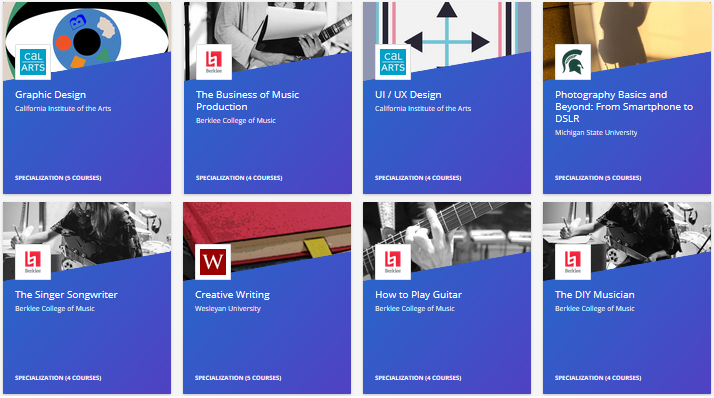Updated Sunday, 26th July 2020
Get career-ready with in-demand skills
Enroll in courses and Learn for FREE till September 30, 2020
AITM is excited to partner with Coursera, the leading online learning platform, to make our students job ready. It’s a digital leap towards transforming the learning experience for our students, alumni, and faculty!
Build the skills employers are looking for with full access to Coursera’s catalog of 3,800+ courses, Guided Projects, Specializations, and Professional Certificates
There are courses in different streams
- Computer Science
- Electronics and Communication
- Electrical
- Mechanical
- Civil
Even Generic ones, like “Communication Skills” under Business / Personal Development Category
Other streams as below
- Leadership and Management
- Entrepreneurship
- Personal Development
- Business Strategy
- Music and Art
These courses with Certification are absolutely FREE if you enroll through AITM. However, you will have to complete the courses by September 30th 2020
How to register
To register, send an email with your Registration Number which is available in your Engineering Degree Certificate / Course Completion Certificate or Mark List
Shrishail Bhat
Assistant Professor
ShrishailBhat@anjuman.edu.in

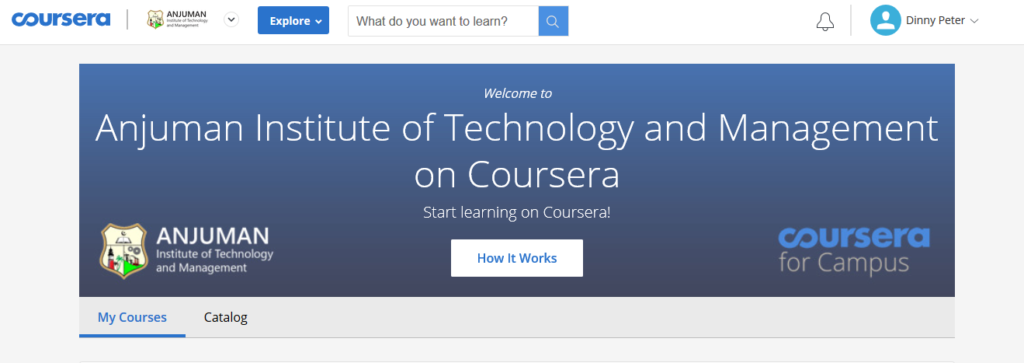
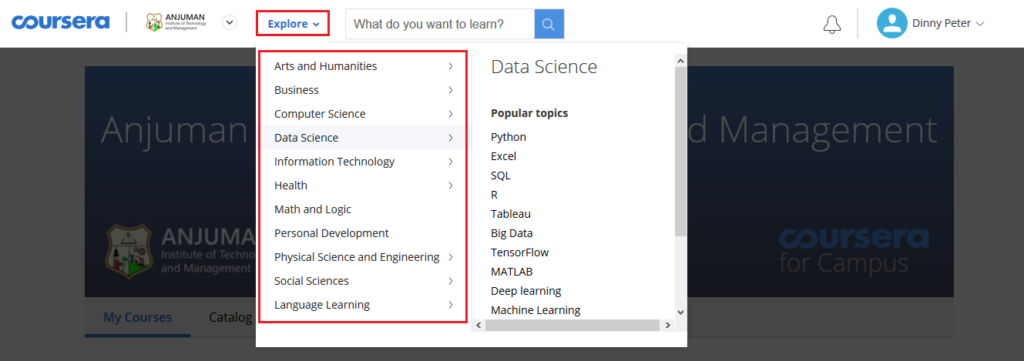
Or you could type the course in the “search bar”
You can enroll in multiple courses which leads to Specialization and Subsequent Certification.
Like, one of the top Certification Courses “Machine Learning with TensorFlow on Google Cloud Platform Specialization” which involves the below courses
- Feature Engineering
- Intro to TensorFlow
- Art and Science of Machine Learning
- How Google does Machine Learning
- Launching into Machine Learning
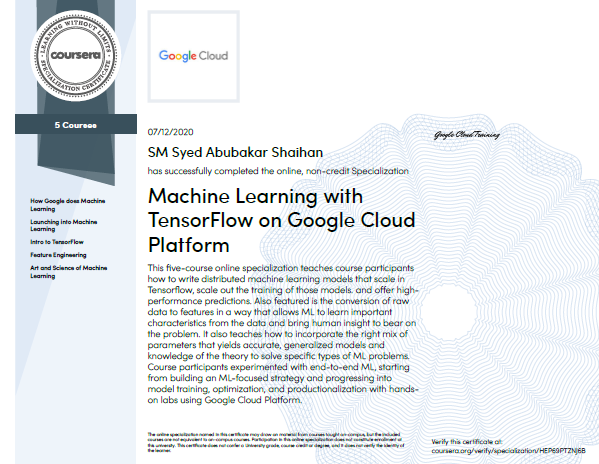
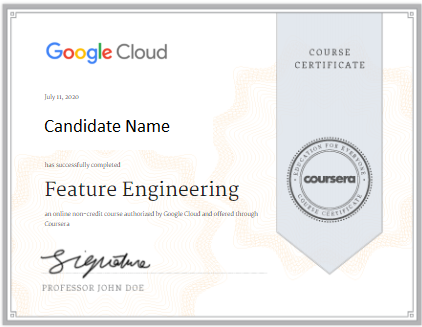
Top Courses for IT Aspirants
Machine Learning with TensorFlow on Google Cloud Platform Specialization
https://www.coursera.org/specializations/machine-learning-tensorflow-gcp
Google IT Automation with Python Professional Certificate
https://www.coursera.org/specializations/google-it-automation
Introduction to Artificial Intelligence (AI) by IBM
https://www.coursera.org/learn/introduction-to-ai
Python for Everybody Specialization
https://www.coursera.org/specializations/python
Top Courses for Mechanical / Civil Streams
Autodesk Certified Professional: AutoCAD for Design and Drafting Exam Prep
https://www.coursera.org/learn/autodesk-autocad-design-drafting
Autodesk CAD/CAM/CAE for Mechanical Engineering Specialization
https://www.coursera.org/specializations/autodesk-cad-cam-cae-mechanical-engineering
Autodesk Certified Professional: Civil 3D for Infrastructure Design Exam Prep
https://www.coursera.org/learn/autodesk-civil-3d-infrastructure-design
Autodesk Certified Professional: Revit for Structural Design Exam Prep
https://www.coursera.org/learn/autodesk-revit-for-structural-design-exam-prep
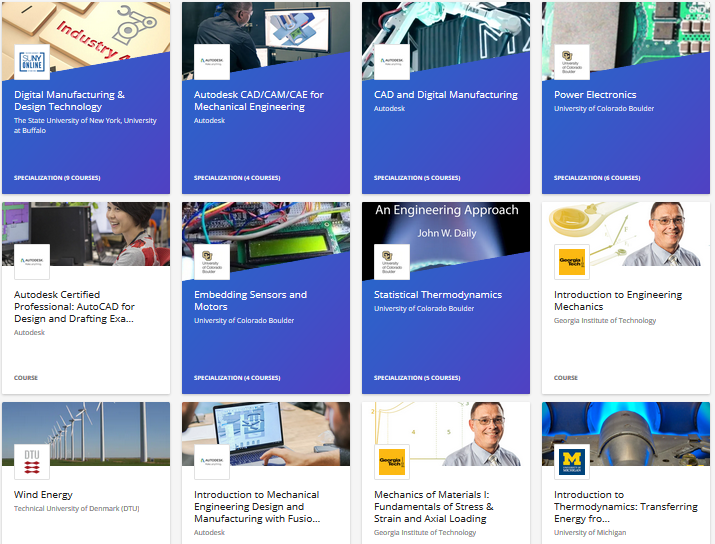
Top Courses for ENC / EE
Development of Secure Embedded Systems Specialization
https://www.coursera.org/specializations/embedded-systems-security
After following this course successfully, you are able to develop secure embedded systems that are at the core of these safety and security critical systems. You are even challenged to program your own landing guiding system in our capstone project.
Project is a practical programming assignment in which the learner combines the knowledge from our three courses. The learner will develop a real embedded IoT system based on the FreeRTOS platform from Wittenstein Ltd. It is a true engineering task in which the learner must apply both their skills and creativity to build a functioning large scale embedded system.
If you are interested in building secure embedded systems for the benefit of humanity, this specialization is for you!
VLSI CAD Part I: Logic
https://www.coursera.org/learn/vlsi-cad-logic
A modern VLSI chip is a remarkably complex beast: billions of transistors, millions of logic gates deployed for computation and control, big blocks of memory, embedded blocks of pre-designed functions designed by third parties (called “intellectual property” or IP blocks). How do people manage to design these complicated chips? Answer: a sequence of computer aided design (CAD) tools takes an abstract description of the chip, and refines it step-wise to a final design. This class focuses on the major design tools used in the creation of an Application Specific Integrated Circuit (ASIC) or System on Chip (SoC) design. Our focus in this part of the course is on the key logical and geometric representations that make it possible to map from logic to layout, and in particular, to place, route, and evaluate the timing of large logic networks. Our goal is for students to understand how the tools themselves work, at the level of their fundamental algorithms and data structures. Topics covered will include: technology mapping, timing analysis, and ASIC placement and routing.
Recommended Background Programming experience (C, C++, Java, Python, etc.) and basic knowledge of data structures and algorithms (especially recursive algorithms). An understanding of basic digital design: Boolean algebra, Kmaps, gates and flip flops, finite state machine design. Linear algebra and calculus at the level of a junior or senior in engineering. Exposure to basic VLSI at an undergraduate level is nice — but it’s not necessary.
VLSI CAD Part II: Layout
https://www.coursera.org/learn/vlsi-cad-layout
Self-Driving Cars Specialization
https://www.coursera.org/specializations/self-driving-cars
Be at the forefront of the autonomous driving industry. With market researchers predicting a $42-billion market and more than 20 million self-driving cars on the road by 2025, the next big job boom is right around the corner.
This Specialization gives you a comprehensive understanding of state-of-the-art engineering practices used in the self-driving car industry. You’ll get to interact with real data sets from an autonomous vehicle (AV)―all through hands-on projects using the open source simulator CARLA.
Throughout your courses, you’ll hear from industry experts who work at companies like Oxbotica and Zoox as they share insights about autonomous technology and how that is powering job growth within the field.
You’ll learn from a highly realistic driving environment that features 3D pedestrian modelling and environmental conditions. When you complete the Specialization successfully, you’ll be able to build your own self-driving software stack and be ready to apply for jobs in the autonomous vehicle industry.
It is recommended that you have some background in linear algebra, probability, statistics, calculus, physics, control theory, and Python programming. You will need these specifications in order to effectively run the CARLA simulator: Windows 7 64-bit (or later) or Ubuntu 16.04 (or later), Quad-core Intel or AMD processor (2.5 GHz or faster), NVIDIA GeForce 470 GTX or AMD Radeon 6870 HD series card or higher, 8 GB RAM, and OpenGL 3 or greater (for Linux computers).
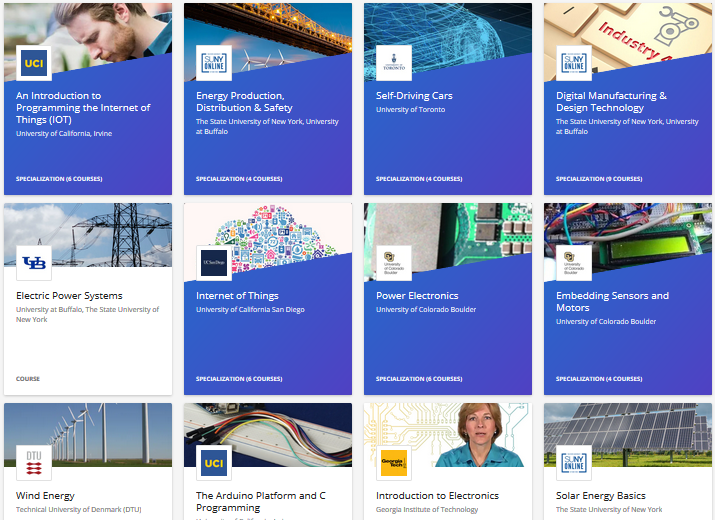
Leadership and Management Courses
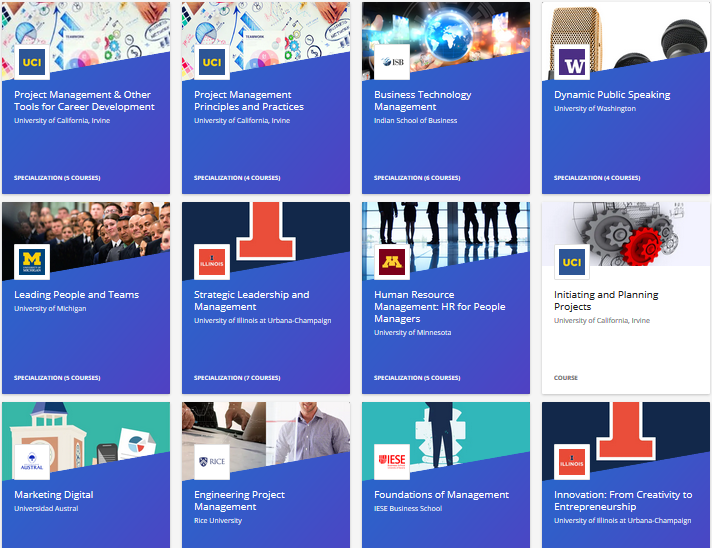
Personal Development
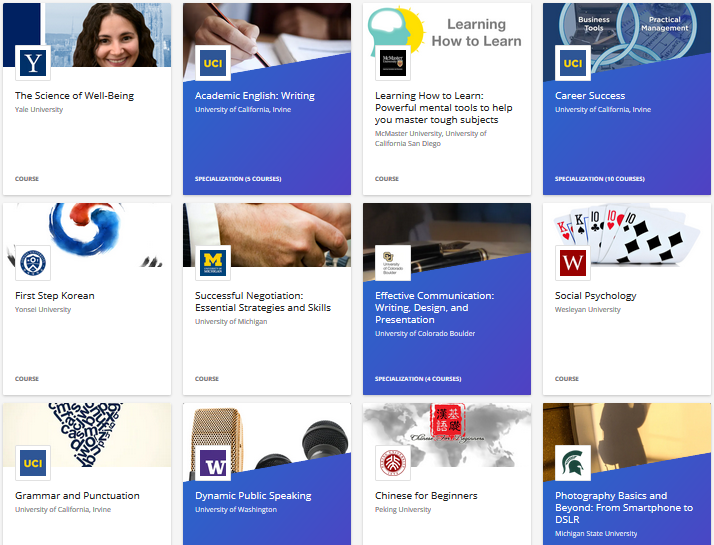
Entrepreneurship
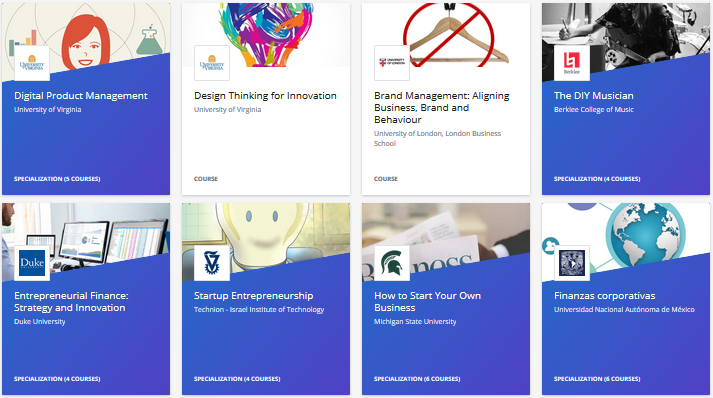
Business Strategy
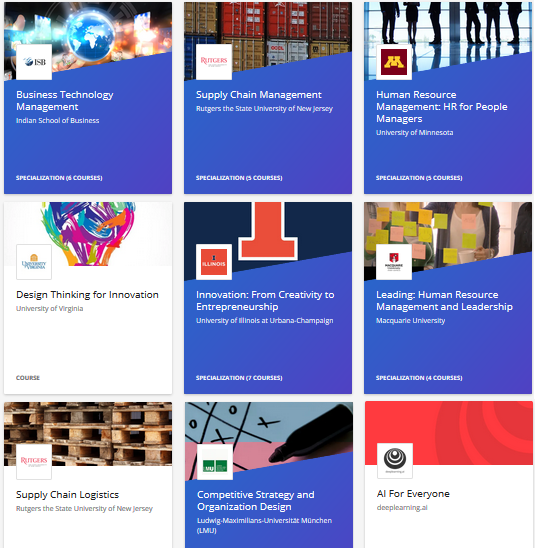
Music and Art
